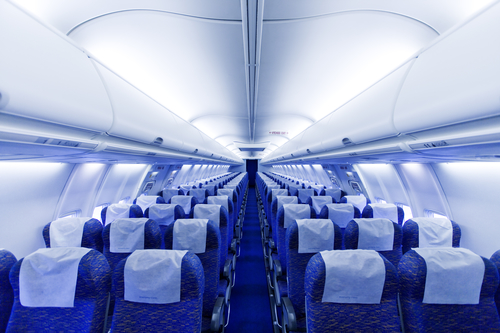Perhaps I was unclear; I meant American Airlines -- they're the one of the 6 legacies that has never undergone bankruptcy proceedings.
 I was unclearer. I didn't mean "American airlines" as in "American Airlines Corporation (ticker symbol AA)", but rather as "airlines that operate in America". It's easy to see where you could get confused...
I was unclearer. I didn't mean "American airlines" as in "American Airlines Corporation (ticker symbol AA)", but rather as "airlines that operate in America". It's easy to see where you could get confused...
Most people hate flying and rightly so.









Comment